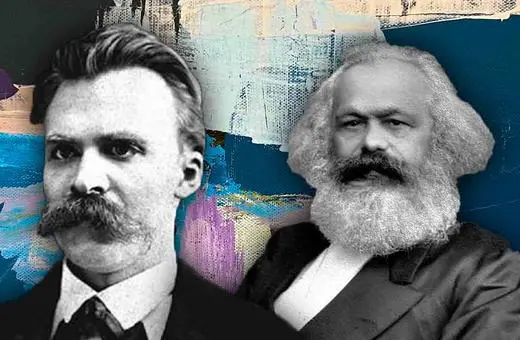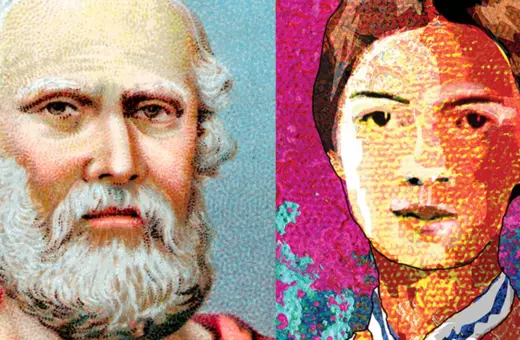According to psychologists like Steven Pinker, music is a peripheral part of our humanity. If music vanished overnight, Pinker argues, "the rest of our lifestyle would be virtually unchanged." For Nietzsche, this is a radical mistake. In this article, Kathleen Higgins presents Nietzsche's argument for music being the foundation of language, without which our lives would not be recognizably human at all. Far from being peripheral, music is essential to our humanity. As Nietzsche wrote late in life: "Without music, life would be a mistake."
Music is a pervasive presence, not only marking special occasions like birthdays and weddings, but also serving as background for daily activities like driving, exercising, or watching a show. So prevalent is music in our ordinary routines that it is hard to imagine what our lives would be like without it.
But cognitive psychologist Steven Pinker considers music more or less dispensable. “Compared with language, vision, social reasoning, and physical know-how,” he remarks, “music could vanish from our species and the rest of our lifestyle would be virtually unchanged.” He contends that music is a “spandrel,” in the terminology of biologist Stephen Jay Gould, a by-product of the way we have evolved, but without evolutionary value itself. Pinker calls music “auditory cheesecake.” It “tickles” a number of our mental faculties, but is no more essential to human life than cheesecake is to our diet. In this respect, music is unlike language, which is an important evolutionary adaptation that aids in our survival.
___
Our ability to communicate meanings linguistically presupposes our musicality.
___
Nineteenth-century German philosopher Friedrich Nietzsche would argue that Pinker has it all wrong, particularly in his comparison of music and language. Nietzsche rejects the idea that language is more fundamental than music to the life of our species. According to him, our ability to communicate meanings linguistically presupposes our musicality. Without music, he argues, we would not have language as we know it.
The idea that music is a precondition of language may sound far-fetched, but debates about whether music or language is more fundamental have been longstanding in Western thought. Ancient Greek philosophers such as Plato and Aristotle examined the connection between music and language when they considered poetry set to music. They argued that in such settings, musical rhythms and melodies should support the texts that they accompanied. This view led late Renaissance opera composers to develop the recitative, which involved setting texts so that the music mimicked the rhythms and contours of speech. The recitative was so musically constrained that composers interspersed recitatives with arias, providing opportunities for singers to show off their virtuosity.
Early Christian thinkers debated whether God had endowed human beings with music as part of their nature or whether music was a later human invention. Modern thinkers disagreed on the origin of music and language and whether one preceded the other. Jean-Jacques Rousseau thought that language and music emerged from a common expressive mode—a view that in broad terms continues to have some currency. Herbert Spencer maintained that language came first, with music developing as a way of heightening emotion in speech. Charles Darwin, by contrast, contended that the melodic and rhythmic features of nonhuman animal vocalizations developed as means for attracting members of the opposite sex, suggesting that music (in some sense of the term) was prior to language.
___
We recognize this commonality with others through the tonal subsoil, the musical aspect of language.
___






















Join the conversation